About RISO
The leader in the duplicator world
Historical printing process at RISO
Duplicator technology is now used in more than 190 countries and regions across the globe.
In 1980, RISO rose to its first challenge as a manufacturer of printing solutions by launching its first duplicator, also known as the risograph.
Printer, ink manufacturer and then, finally, designer of printing solutions. The expertise gathered by Noboru Hayama, founder of the RISO KAGAKU CORPORATION, has made it possible to combine a wealth of knowledge with mastery of the production processes in order to develop printing solutions that respond to the market’s needs.
Duplicator technology, making use of a stencil-based system just like its predecessor, the mimeograph, revolutionised the printing market.
During the 1980s, RISO continued to develop its technology, which very quickly gained international popularity, in particular due to the extra time saving for its users.
Our capacity to innovate has remained our greatest asset in ensuring we retain our position as a leader. Now present in more than 190 countries, RISO is committed to continuously further refining its range of duplicators in order to respond to users’ needs.
The evolution of RISO's Duplicator
-
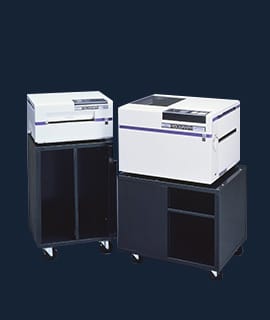 1980
1980RISOGRAPH FX7200, AP7200
The first Risograph divided into two parts: the tool for creating masters and the printing tool. -
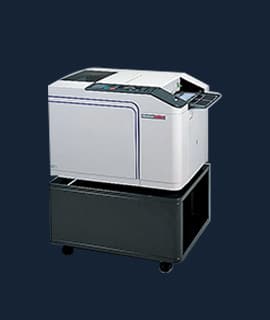 1984
1984RISOGRAPH 007
The first solution to integrate all the functions necessary to create and print in a single unit -
 2000
2000RISO V8000
The first digital duplicator capable of printing in two colours in a single pass. -
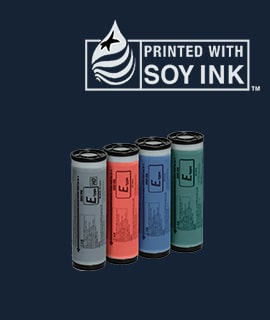 2001
2001SOY INK
Introduction of soy oil-based inks for black-and-white and colour use. -
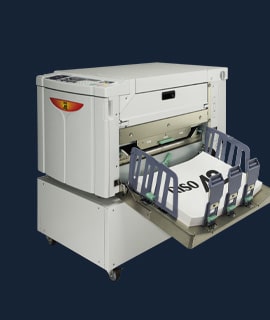 2013
2013RISO A2
The only digital duplicator making it possible to print in A2 format, particularly well suited for newspaper reproduction -
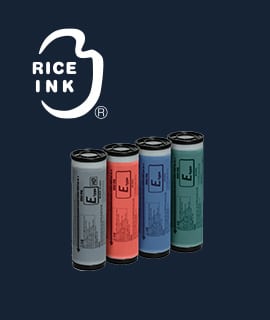 2017
2017RICE INK
Launch of RISO’s rice bran oil-based inks, making it possible to reduce waste and use resources efficiently -
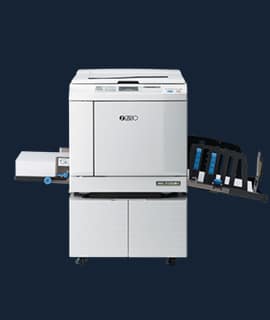 2019
2019RISO SFEII
Exceptionally high print speed and faultless availability to respond to the most varied printing requirements.
Adaptability of the duplicator
Resistant to heat, humidity and dust, duplicator technology is adaptable to different climates and environments and has become an essential printing tool, in particular in Africa.
The duplicator in art
The special, unique aesthetic of the duplicator has led to the emergence of an artistic movement known as Risographism.
In this case, the use of the duplicator differs from the conventional approach. Based on the range of colours available, artists experiment with different superimpositions of colours in order to achieve innovative, striking and immediate results.
